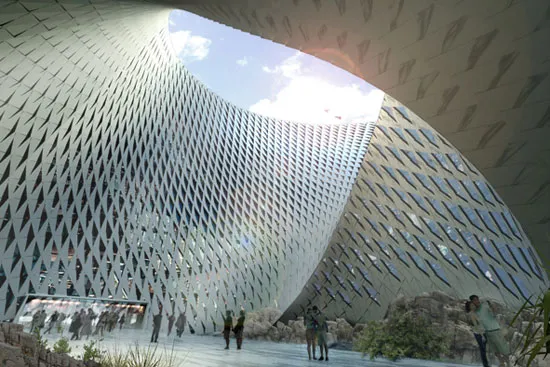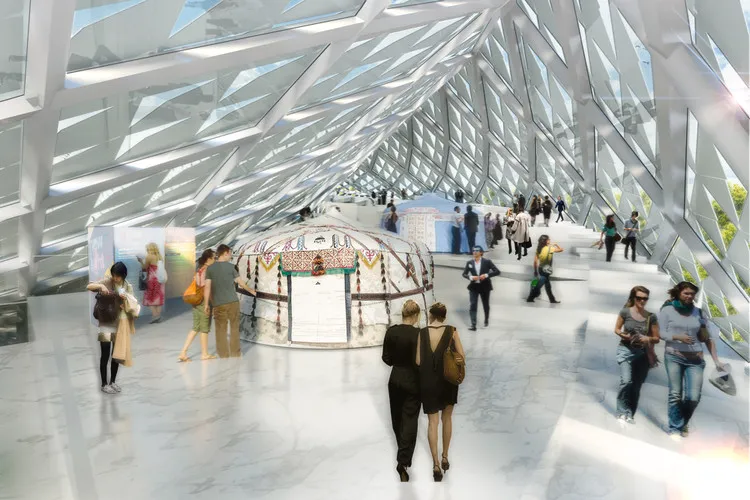Astana recently welcomed the World Library and Information Congress, and the city sparkled with ideas, energy and friendly collaboration. Librarians, archivists, technologists, educators and students from around the world gathered to celebrate libraries, share practical solutions and make plans that will help communities everywhere access knowledge and culture.
This was more than a conference. It was a week-long exchange of tools, stories and partnerships that will lead to real results back home — small changes that improve daily life and larger projects that protect cultural memory for future generations.
Table of contents
- A meaningful first for Central Asia
- A program full of practical ideas
- People made it happen
- Libraries as community centers
- Technology that serves people
- Celebrating local culture
- Partnerships that expand reach
- Ready-to-use pilots and tools
- Uplifting stories that inspire
- A lasting legacy of connections
- What’s next
- Why this matters
- In short
A meaningful first for Central Asia
For the first time, the World Library Congress met in Central Asia. Hosting the event in Astana invited voices from the region into global conversations and made it easier for local librarians, students and cultural groups to participate. That inclusion expanded the exchange of ideas and showed that the global library community grows stronger when meetings move to new places.
A program full of practical ideas
The schedule in Astana was packed with sessions that were both inspiring and useful. Attendees could choose from workshops, research talks, technology demos and hands-on case studies.
Many sessions focused on:
- affordable digitization methods,
- community reading programs,
- digital literacy training,
- makerspaces and creative learning,
- and ways to make collections easier to find.
People left sessions with clear, practical plans they could try immediately — tools that small libraries can adapt without big budgets.
People made it happen
The heart of the congress was the people. Seasoned archivists shared wisdom. Young librarians brought fresh energy. Public librarians from rural places described how they reach readers. Technology partners showed tools designed to help communities. The atmosphere was friendly, curious and supportive.
Special attention was given to students and early-career professionals. Mentorships, hands-on workshops and networking helped them build skills and connections that will serve their careers for years.
Libraries as community centers
One clear message came through repeatedly: libraries are central to community life. Examples shared at the congress showed how public libraries:
- teach digital skills to job seekers,
- support small businesses with resources and training,
- run literacy programs that boost children’s learning,
- and bring people together with local history projects.
These examples prove that libraries create opportunity and strengthen neighborhoods. The ideas shared in Astana can be adapted to many places — from big cities to small towns.
Technology that serves people
Technology was everywhere at the congress, but the conversation always circled back to people. Presenters showed how tools can help when they focus on real user needs.
Highlights included:
- low-cost ways to digitize fragile books and documents,
- AI tools that speed up transcription while keeping human oversight,
- easy search platforms for people who aren’t tech experts,
- makerspace programs that teach coding and hands-on skills.
The core idea: technology should open access, not make it harder. When used thoughtfully, digital tools can unlock collections, preserve heritage and help more people learn.
Celebrating local culture

Astana’s hosts put local culture on full display. Delegates visited national libraries and exhibitions, saw rare materials and enjoyed cultural programs that highlighted Kazakhstan’s storytelling traditions.
These cultural moments enriched the congress. International visitors gained new perspectives, and local institutions received fresh ideas and potential partners. The exchange showed how honoring a country’s heritage and using modern tools can go hand in hand.
Partnerships that expand reach
Astana was a fertile place for partnerships. Universities, libraries, NGOs and technology providers met and planned joint work. Some partnerships will support:
- shared digitization efforts,
- training for rural library staff,
- pooled resources for small institutions.
Partnerships matter because they let small libraries access expertise and funding they might not get alone. By working together, libraries can do more for their communities.
Ready-to-use pilots and tools
A great strength of the congress was how many takeaways were immediately usable. Delegates found templates and blueprints they could try right away:
- community reading program outlines,
- low-cost scanning workflows,
- outreach plans for rural audiences.
These small but effective projects can bring quick, visible benefits to local users and build momentum for larger initiatives.
Uplifting stories that inspire
Beyond panels and technology, the week was full of human stories that felt hopeful. Attendees shared:
- a mobile library bringing books to remote villages,
- volunteers running reading circles that boost children’s confidence,
- a conservator who saved a manuscript and then taught students about it.
These stories reminded everyone that big change often starts with small, local acts. Hearing one library’s success often sparks someone else to try the idea back home.
A lasting legacy of connections
The most durable outcome of the congress was the relationships formed. Informal chats, mentorship matches and small workgroups will continue after delegates return home. These human connections are the scaffolding for future projects: joint digitization, shared exhibitions, cross-border training and research collaborations.
Many projects that began as hallway conversations at the congress will turn into concrete programs that help communities thrive.
What’s next
As delegates take their ideas back home, expect to see pilot projects grow. Digitization pilots can expand into searchable national collections. Reading programs can scale into regional initiatives. Training partnerships can strengthen the skills of librarians in underserved places.
Astana planted seeds — and those seeds will grow into projects that increase access to knowledge and brighten community life.
Why this matters
This congress made one thing clear: libraries are vital, modern, adaptable and full of promise. They are not relics from the past; they are engines of opportunity and connection today. The event in Astana brought practical solutions and renewed energy to librarians around the world — and millions of people will benefit when these ideas are implemented.
In short
Astana’s hosting of the World Library and Information Congress was a hopeful, useful and inspiring moment for the global library community. The city provided a welcoming stage for sharing tools, forging partnerships and celebrating culture. Delegates left inspired, equipped with practical plans, and connected to a global network that will help their work grow.
If you care about learning, culture and community, the work that started in Astana is something to watch — and to support. The ideas and relationships born there will bring knowledge closer to people everywhere.
